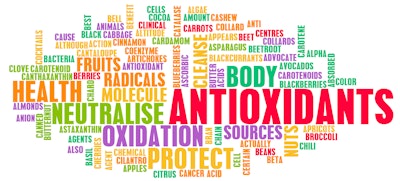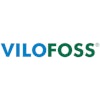
Oxidative stress in poultry affects several factors, from animal health to fertility to meat quality. That’s why an antioxidant supplement is so important, said Teresa M. Agulles Teixidó, operations at PlusVet Animal Health.
Agulles Teixidó spoke January 31 at a TECHTalk during the International Production & Processing Expo (IPPE) in Atlanta, Georgia.
Oxidative stress is the imbalance between the production of free radicals and the ability of the body to neutralize these radicals. Free radicals are produced naturally in the body as a part of normal metabolism, Agulles Teixidó said.
“They have a good, a positive, function in the body,” she said. “For example, they may help cells to fight infections. And on the other hand, the body has a natural defense system to neutralize these free radicals whenever the quantity or the amount of free radicals is too much. Oxidative stress happens whenever either there are too many free radicals produced or the natural antioxidant defense system of animal is not strong enough.”
Oxidative stress reduces feed intake; slows growth and damages productivity; causes inflammation; weakens the immune system; leads to leaky gut; reduces fertility; and oxidizes the proteins and fats in the meat or eggs, deteriorating quality, taste and shelf life.
Heat stress can be related to oxidative stress, Agulles Teixidó said, and can have a negative effect on meat quality.
“This happens because an acute stress has an influence on the pH of the meat,” she said. “The pH of the meat after slaughter is very important for the quality of the meat.”
Very low or relatively low pH combined with a higher temperature leads to protein denaturation, which causes the meat to be unable to hold water properly, and the meat appears pale, soft and exudative.
In addition, Agulles Teixidó said, the risk of carcass contamination by foodborne pathogens, such as E. coli and Salmonella, increases during periods of heat stress. This is due to more challenges from pathogens and mycotoxins in hot weather, immunosuppression associated with heat stress, and because intestinal integrity is impaired during heat stress, leading to leaky gut and the spread of digestive pathogens to other organs.
PlusVet’s antioxidant product, PhytoShield, aims to reduce oxidative stress with water-soluble and lipid-soluble antioxidants. This is because water-soluble antioxidants neutralize free radicals in blood serum, seminal plasma, and extracellular and intracellular fluid, while lipid-soluble antioxidants protect lipids in the cell membrane – or phospholipid bilayer – from oxidation.
The phospholipid bilayer maintains the shape of the cell; acts as a semi-permeable membrane, allowing water, oxygen and other molecules to pass through it and protecting the cell from foreign materials; plays a key role in recognition and communication processes; and maintains a proper intracellular environment.
“Whenever this phospholipid bilayer is oxidative and loses its shapes, the cell does not work in an optimal way, cannot function normally,” Agulles Teixidó said, adding that there may be more applications for natural antioxidants in the future as more research is conducted.














